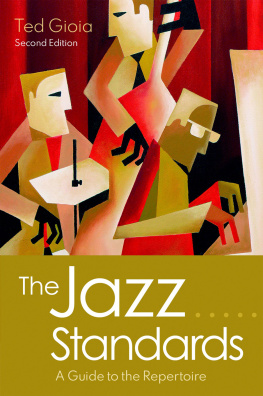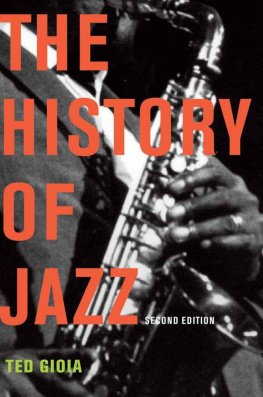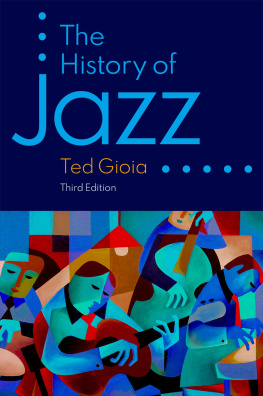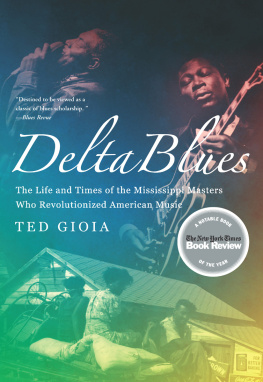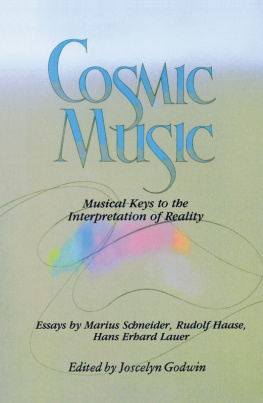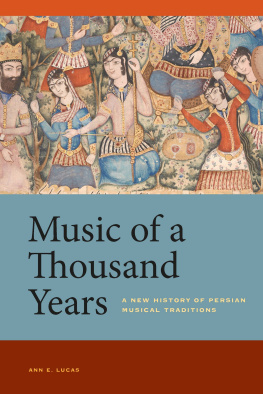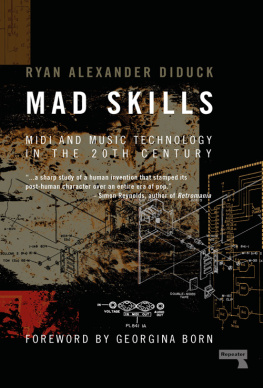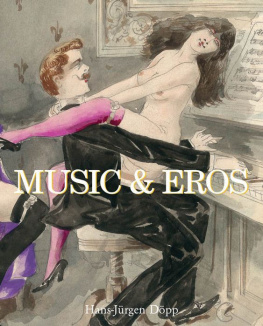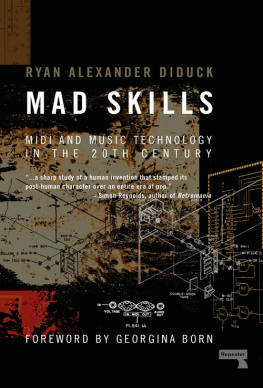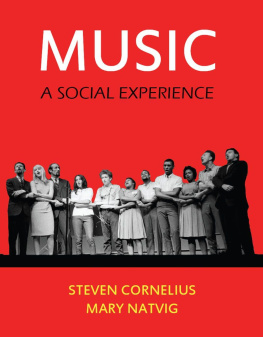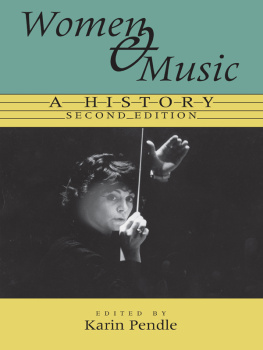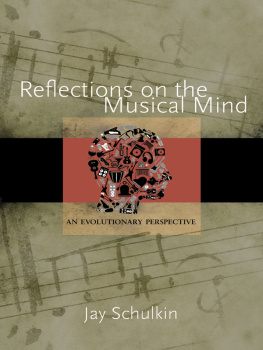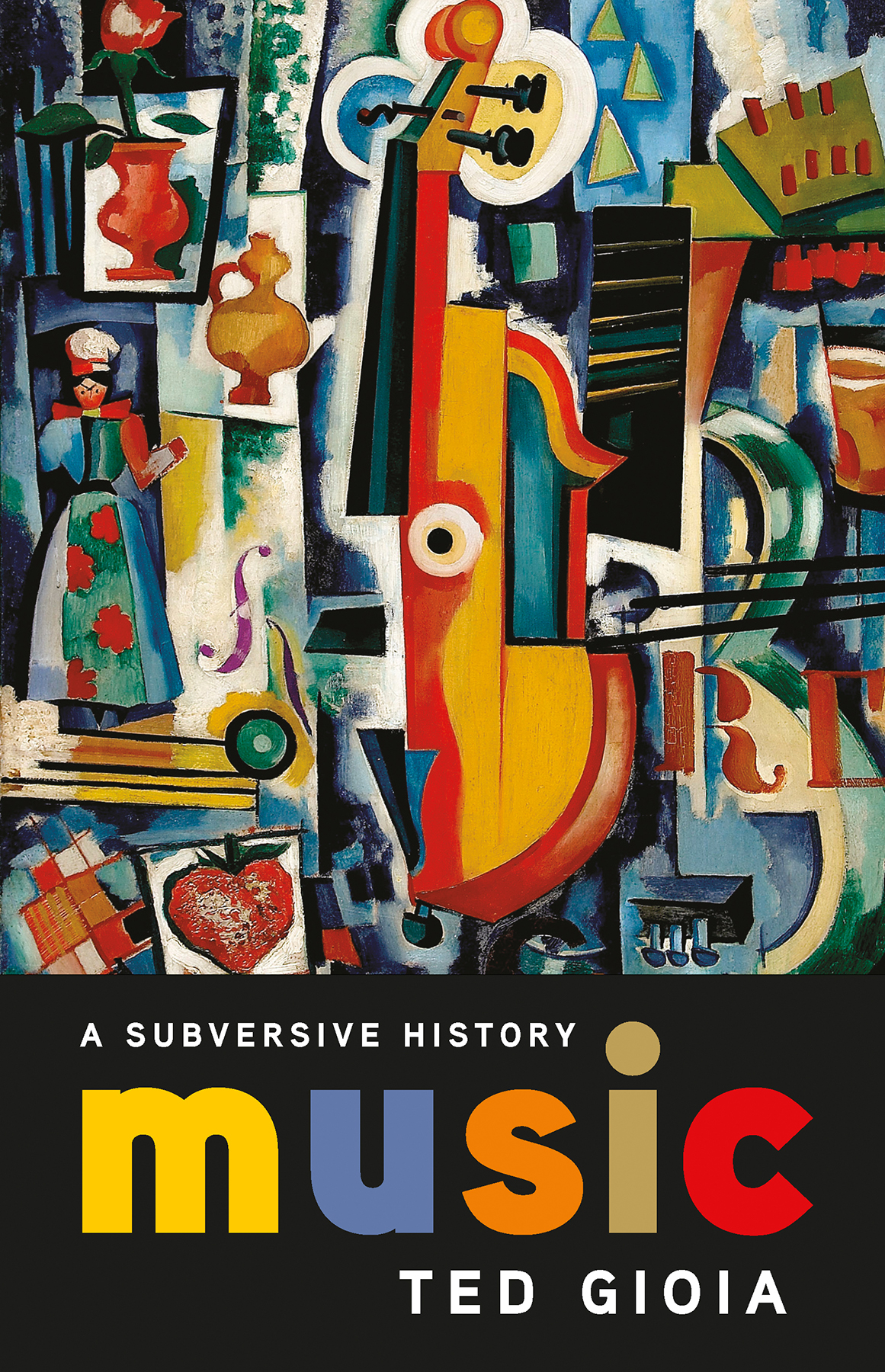Copyright 2019 by Ted Gioia
Jacket design by Chin-Yee Lai
Jacket image The Calouste Gulbenkian Foundation / Scala / Art Resource, NY
Cover copyright 2019 Hachette Book Group, Inc.
Hachette Book Group supports the right to free expression and the value of copyright. The purpose of copyright is to encourage writers and artists to produce the creative works that enrich our culture.
The scanning, uploading, and distribution of this book without permission is a theft of the authors intellectual property. If you would like permission to use material from the book (other than for review purposes), please contact permissions@hbgusa.com. Thank you for your support of the authors rights.
Basic Books
Hachette Book Group
1290 Avenue of the Americas, New York, NY 10104
www.basicbooks.com
First Edition: October 2019
Published by Basic Books, an imprint of Perseus Books, LLC, a subsidiary of Hachette Book Group, Inc. The Basic Books name and logo is a trademark of the Hachette Book Group.
The Hachette Speakers Bureau provides a wide range of authors for speaking events. To find out more, go to www.hachettespeakersbureau.com or call (866) 376-6591.
The publisher is not responsible for websites (or their content) that are not owned by the publisher.
Library of Congress Cataloging-in-Publication Data
Names: Gioia, Ted, author.
Title: Music : a subversive history / Ted Gioia.
Description: First edition. | New York : Basic Books, 2019. | Includes bibliographical references and index.
Identifiers: LCCN 2019001627 | ISBN 9781541644366 (hardcover : alk. paper) | ISBN 9781541617971 (ebook)
Subjects: LCSH: Music--Social aspects--History. | Music--Political aspects--History.
Classification: LCC ML3916 .G59 2019 | DDC 780.9--dc23
LC record available at https://lccn.loc.gov/2019001627
ISBNs: 978-1-5416-4436-6 (hardcover), 978-1-5416-1797-1 (ebook)
E3-20190830-JV-NF-ORI
In this meticulously researched yet thoroughly page-turning book, Gioia argues for the universality of music from all cultures and eras. Subversives from Sappho to Mozart and Charlie Parker are given new perspectiveas is the role of the church and other arts-shaping institutions. Music of emotion is looked at alongside the music of political power in a fascinating way by a master writer and critical thinker. This is a must-read for those of us for whom music has a central role in our daily lives.
F RED H ERSCH , pianist and composer and author of Good Things Happen Slowly: A Life in and Out of Jazz
How to Listen to Jazz
Love Songs: The Hidden History
The Jazz Standards: A Guide to the Repertoire
The Birth (and Death) of the Cool
Delta Blues
Healing Songs
Work Songs
The History of Jazz
West Coast Jazz:
Modern Jazz in California, 19451960
The Imperfect Art:
Reflections on Jazz and Modern Culture
For Tara, Michael, and Thomas
Music, to create harmony, must investigate discord.
PLUTARCH
I accept chaos. Im not sure whether it accepts me.
BOB DYLAN
I ll admit it. I cringe when I hear the term music history. The phrase summons up images of long-dead composers, smug men in wigs and waistcoats. I hear the refrain of a stately dance in waltz meter performed for some decrepit king and his court. People are dancing without touching, merely making stiff bows and curtsies in each others direction. Even the musicians struggle to stifle their yawns.
You may have similar notions about music history. But why? In all fairness, the institutions that preserve and propagate the inherited traditions of our musical culture dont intend to be boring. But they do crave respectability, and this zeal to present an image of stiff decorum imparts a palpable sense of tedium to almost everything they touch. Music is drained of its vitality, and at times even becomes a chore. Just as you go to the dentist to take care of your teeth, you show up dutifully at the symphony to burnish your cultural street cred. But look around you at your next visit to the concert hall, and count how many people appear to be sleeping in their high-priced seats.
This pervasive ennui is a symptom of a deeper problem with music history. Boredom, in itself, is no crime. Many subjects are inherently boring, and their exponents even pride themselves on their monotonous routines. I once took a class in cost accounting, and Shakespeare himself, brought back to life and given a CPA certificate, couldnt have made that textbook enjoyable. My statistics class was worse, situating itself more than two standard deviations outside the realm of the mildly interesting. Even in the arts and humanitiesspheres of human endeavor whose very destiny is to delight and astonishmany academic journals will kill any submission in peer review if it fails to achieve a mandated level of obstinate dreariness. These fields cultivate boredom the same way a farmer grows tobaccowho cares if the crop is deadening, so long as it sells? No one expects otherwise.
So I dont object to the boredom of conventional music history because I demand excitement. I object, rather, to the false notions that undergird the tedium. When we celebrate the songs of previous eras, the respectable music of cultural elites gets almost all the attention, while the subversive efforts of outsiders and rebels fall from view. The history books downplay or hide essential elements of music that are considered disreputable or irrationalfor example, its deep connections to sexuality, magic, trance and alternative mind states, healing, social control, generational conflict, political unrest, even violence and murder. They whitewash key elements of a four-thousand-year history of disruptors and insurgents creating musical revolutions, instead celebrating assimilators within the mainstream power structure who borrowed these innovations while diluting their impact and disguising their sources. More than historical accuracy is lost in the process. The very sources from which creativity and new techniques arise are distorted and misrepresented. A key theme of this book is that the shameful elements of songstheir links to sex, violence, magic, ecstatic trance, and other disreputable mattersare actually sources of power, serving as the engines of innovation in human music-making. When we cleanse the historical record of their presence, we lose our grasp on how our most cherished songs arose in the first place.
The real history of music is not respectable. Far from it. Neither is it boring. Breakthroughs almost always come from provocateurs and insurgents, and they dont just change the songs we sing, but often shake up the foundations of society. When something genuinely new and different arrives on the music scene, those in positions of authority fear it and work to repress it. We all know this because it has happened in our own lifetimes. We have seen firsthand how music can challenge social norms and alarm upholders of the status quo, whether political bosses, religious leaders, or just anxious parents fretting about some song bellowing ominously from behind a teenagers bedroom door. Yet this same thing has been happening since the dawn of human history, and maybe even longeralthough you wont get told that side of the story in Music 101, or from the numerous well-funded music institutions devoted to protecting their respectability and the highbrow pretensions of their mission statements.


